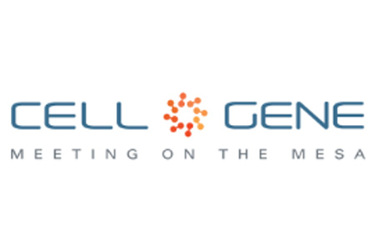5 Takeaways From Meeting On The Mesa 2023

By Tyler Menichiello, Chief Editor, Bioprocess Online

Earlier this month, I attended my first Meeting On The Mesa, Alliance For Regenerative Medicine’s (ARM) annual cell and gene conference, in Carlsbad, CA. As expected, it delivered outstanding networking, presentations, and panel discussions with industry leaders. In the two days I was there, I attended as many sessions as possible. By the end of it, my notebook was overflowing. However, I’ve since combed through my awful handwriting to highlight what I think are the five most important quotes from this year’s speakers.
Editor’s Note: I was joined by my colleague and chief editor, Erin Harris. You can see her event takeaways here. While we were there, she also recorded several episodes of Cell & Gene: The Podcast that you won’t want to miss. Subscribe wherever you get your podcasts — a new episode drops every other Thursday.
“Are cell and gene therapies a good bet? The answer appears to be, from a technical and regulatory success approach, that they are a phenomenal clinical bet going forward.” — Mark Trusheim, strategic director, New Drug Development Paradigms (NEWDIGS), Tufts Medical Center
Spotlight Session: Are CGTs A Good Clinical Bet?
Trusheim presented data comparing the relative success (in terms of FDA approval) between cell and gene therapies (CGT) and other treatment modalities. This NEWDIGS analysis compared the success of clinical trials reported in clinicaltrials.gov to all the CGT programs reported from 1988 to 2020 using data from the Biotechnology Innovation Organization (BIO) and IQVIA. They found CGT for orphan diseases and hematological cancers are two to 3.5 times more likely to be approved than other treatments for similar conditions.
According to the BIO data, CAR-T/T-cell receptor therapies (TCR) are three times as likely to achieve FDA approval than the average oncology drug. When compared specifically to hematological oncology drugs, CAR-T/TCRs are more than twice as likely to be approved after Phase 2. The analysis found orphan gene therapies to be 3.5 times as likely to be approved than the average drug in clinical trials when looking at the BIO data, and 2.1 times as likely when looking at the IQVIA data. These therapies outperformed the average drug in similar therapeutic areas across every phase.
“Sometimes it almost feels like we’re trying to develop some Star Trek kind of technology in a Flintstone-like movie.” — Tay Salimullah, VP, Head Global Value and Access, Novartis Gene Therapies
The Importance Of Ethics In Gene And Cell Therapy
This analogy aptly describes the predicament we find ourselves in as an industry — 21st century medicine being developed in a 20th century healthcare system. As more gene therapies get approved for a wider range of conditions — and at increasingly high price points —the sustainability of our current healthcare system comes into question. As panelist Rob Perez puts it, “society is arranged in such a way that it cannot benefit from the good things its investments are producing, and that is a failure.” He went on to say that these important conversations around accessibility and industry responsibility need to be happening now, while we’re still laying down the groundwork. “It will be hard to backtrack on once that infrastructure is built.”
“Accelerated approval is not for every gene therapy.” — Dr. Nicole Verdun, director of the Office of Therapeutic Products (OTP), FDA
Accelerated Approval: Catalyzing Advancements In The Cell And Gene Therapy Field
In this discussion, Verdun outlined the FDA’s criteria for granting accelerated approval and shared some considerations for companies taking this approach. There are two important requirements to achieve accelerated approval: First, surrogate endpoints or intermediate clinical endpoints must be met. Second, post-marketing confirmatory trials need to be conducted. The goal of these confirmatory trials is to address any remaining uncertainty about surrogate endpoints in relation to clinical benefit.
Verdun explained that while biomarkers are common surrogate endpoints for gene therapies, they can sometimes be difficult to correlate with clinical benefit. Furthermore, confirmatory trials showing no clinical benefit may be removed from the market. Because rare diseases have such small patient populations, confirmatory trials may be challenging to run. For these reasons, Verdun explained, accelerated approval may not be the ideal approach for therapies targeting certain rare diseases. It’s not uncommon for companies to seek accelerated approval, believing it is the best way to speed up development. Verdun said she hopes to find ways of doing so for traditional approvals too.
“There’s a sort of mutual benefit in this field. As one company advances, the other companies benefit from the experiences that company has had.” — Dr. Alex Harding, senior VP and head of business development, CRISPR Therapeutics
Precision DNA Targeting – Above and Within Genome Editing
Harding referred to the FDA’s pending decision for CRISPR’s exa-cel, a gene-editing product aimed at treating sickle cell disease and beta thalassemia. The Prescription Drug User Fee Act (PDUFA) date for the sickle cell indication is Dec. 8, 2023, and March 30, 2024, for the beta thalassemia indication. If approved, exa-cel will be the first gene-editing product commercially available to patients. Another panelist, Dr. Laura Sepp-Lorenzino, CSO at Intellia Therapeutics, said this approval will not only be an important milestone for CRISPR, but for the field as a whole.
“Frankly, when I saw the first non-human primate data, I literally fell out of my chair.” — Bob Smith, senior VP, Global Gene Therapy Business, Pfizer
Plenary Session: A Deep Dive Into The Future Of Advanced Therapies
Smith was referring to Pfizer’s collaboration with Voyager Therapeutics’ and their blood brain barrier penetrant AAV capsids. This remark came during a panel discussion on the need for novel gene delivery approaches in the field as we head into 2024. Smith said the field is at an inflection point where new capsids will need to address and surmount the biggest delivery challenges, “particularly with biodistribution.”
